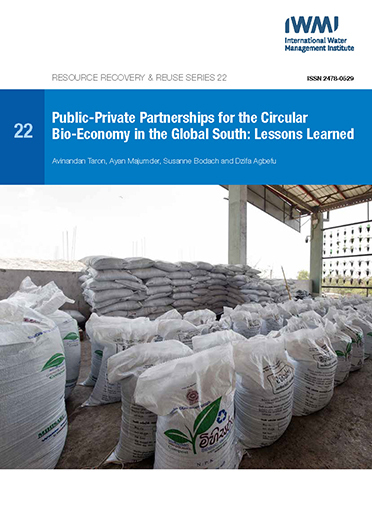Recording forthcoming
Aligned with building sustainable and resilient city region food systems (CRFS), the circular bioeconomy is attracting significant interest as an approach to stimulate economic growth and end dependency on non-renewable resources.
IWMI (2023) Public-private partnerships for the circular bio-economy in the Global South: lessons learned. CGIAR Research Program on Water, Land and Ecosystems (WLE) #33p. Aligned with building sustainable and resilient city region food systems (CRFS), the circular bioeconomy is attracting significant interest as an approach to stimulate economic growth and end dependency on non-renewable resources.
However, the development of the circular bioeconomy faces a number of barriers, such as inflexible regulatory frameworks, safety concerns and potential risks, and logistical challenges. As part of the CRFS Knowledge Exchange Series, this webinar explores common barriers identified through the CGIAR Initiative on Resilient Cities and the FAO-RUAF CRFS Programme, and potential ways to overcome them.
- Makuki Tagushi Moderator FAO
- Susanne Bodoch, circular bioeconomy (CBE) Innovation Hub Coordinator, IWMI Ghana - Multi-stakeholder platforms for promoting innovations in the circular bioeconomy
- Bertha Darteh Adviser in Ghana WASH sector - Examples of circular bioeconomy in Ghana
- Herve Levite FAO Green cities and Bioeconomy team - Bioeconomy for sustainable food systems
Patrick Muiruri, Food Systems Officer, Nairobi City County, Kenya




No comments:
Post a Comment